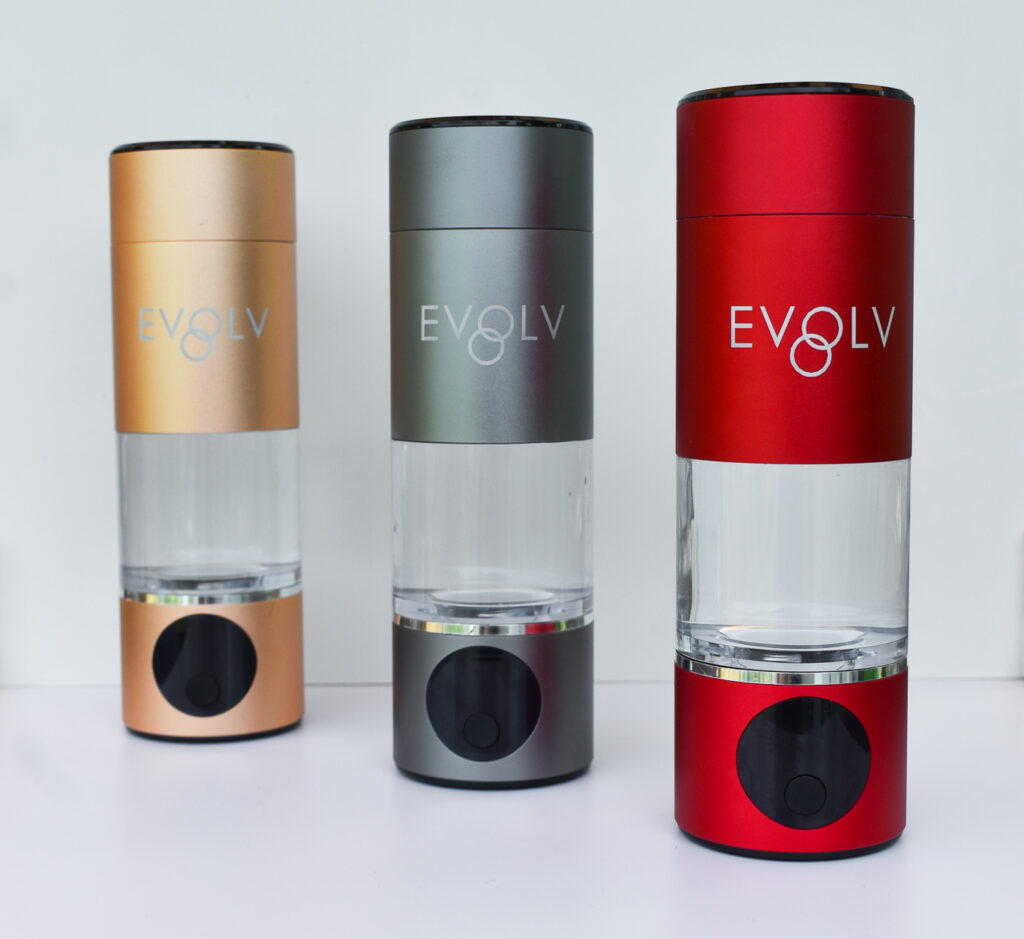
Why is water so critical in your anti-aging journey? Well, we all know that water is essential for life, yet many people underestimate its importance, especially as they age. Staying hydrated is one of the simplest ways to maintain overall health and combat the effects of aging.
In this article we’ll explore how water impacts aging, why hydration becomes more critical with age, and practical tips for maintaining optimal hydration.
How Dehydration Affects the Aging Body
As we age, our bodies undergo various physiological changes that increase the risk of dehydration:
- Reduced Thirst Sensation: Aging can dull the body’s thirst mechanism, making it less likely for older adults to feel thirsty, even when their body needs water.
- Lower Water Reserves: Lean body mass, which contains water, decreases with age. This means the body has a smaller reservoir of water to draw upon.
- Medication Side Effects: Many common medications taken by older adults, such as diuretics and laxatives, can increase water loss and exacerbate dehydration.
- Kidney Function Decline: Aging kidneys are less efficient at conserving water, increasing the risk of dehydration.
The Link Between Hydration and Aging Skin
One of the most visible signs of aging is the skin, and hydration plays a critical role in maintaining its health:
- Elasticity and Plumpness: Proper hydration keeps skin cells plump, reducing the appearance of wrinkles and sagging.
- Detoxification: Water helps flush toxins from the body, which can contribute to a clearer complexion.
- Barrier Function: Adequate hydration supports the skin’s barrier function, preventing dryness and irritation.
Cognitive and Physical Benefits of Staying Hydrated
Dehydration doesn’t just affect the skin; it impacts mental and physical well-being as well:
- Cognitive Health: Even mild dehydration can lead to confusion, difficulty concentrating, and fatigue—issues that are particularly concerning for older adults.
- Joint and Muscle Health: Water acts as a lubricant for joints and muscles, reducing the risk of stiffness and promoting better mobility.
- Digestive Function: Adequate hydration supports healthy digestion, reducing the risk of constipation, which is a common issue among older adults.
Best Types of Water for Aging Adults
Not all water is created equal, and the type of water you consume can impact your health, especially as you age. Structured water, which mimics water found in nature, is considered one of the healthiest options. It has been shown to:
- Enhance Cellular Hydration: Structured water is more easily absorbed by the cells, improving overall hydration efficiency.
- Support Detoxification: Its unique structure helps the body eliminate toxins more effectively.
- Improve Energy Levels: Many users of structured water report feeling more energized, which is vital for combating age-related fatigue.
In addition to structured water, mineral-rich water can provide essential nutrients like magnesium and calcium, which are beneficial for bone health and muscle function. Filtered water is another excellent option, as it removes harmful contaminants while retaining beneficial minerals.
Hydrogenated water is another innovative option supported by recent research. According to a study published on PubMed, hydrogenated water, which is enriched with molecular hydrogen, may offer unique benefits for aging adults. Its antioxidant properties can help combat oxidative stress, a major contributor to aging and age-related diseases. Regular consumption of hydrogenated water has shown potential in improving metabolic health, reducing inflammation, and supporting overall cellular function. This makes it an excellent choice for those looking to optimize their hydration and promote longevity. I have found that Eco Water provides one of the best hydrogenated water products. You can see it at Echo Water here.
If you’re looking for the ultimate hydrogen water bottle for 2025, Evolv is the clearly the winner. The supporting research and PPM count of this quality product is unmatched.

According to MedicineNet, spring water and purified water are also excellent choices. Spring water is typically rich in minerals and undergoes minimal processing, making it a natural option for hydration. Purified water, on the other hand, is processed to remove impurities, making it a clean and safe choice, particularly for those concerned about water quality. Both types of water can contribute to better hydration and overall health.
Practical Tips for Staying Hydrated as You Age
Maintaining proper hydration doesn’t have to be complicated. Here are some actionable tips:
- Set Hydration Goals: Aim to drink at least 8 cups (64 ounces) of water daily (although more is better), adjusting for factors like activity level, climate, and individual needs.
- Incorporate Hydrating Foods: Include fruits and vegetables with high water content, such as cucumbers, watermelon, and oranges, in your diet.
- Use Reminders: Set alarms or use apps to remind you to drink water throughout the day. If you’re sitting from long periods of time, standup and walk to top-up your water every hour, drink a glass of water half an hour before each meal, and don’t wait until you’re thirsty.
- Choose the Right Beverages: While water is best, herbal teas and flavored water can make hydration more enjoyable. I also love coconut water – refreshing and healthy.
- Monitor Hydration Levels: Pay attention to signs of dehydration, such as dark urine, dry mouth, or dizziness, and adjust your intake accordingly.
Conclusion
Water is a cornerstone of healthy aging. By staying hydrated and choosing the best types of water, such as structured, hydrogenated, or mineral-rich water, you can improve your skin’s appearance, boost cognitive function, and maintain overall physical health. As you prioritize hydration, you’re not just quenching your thirst—you’re investing in a healthier, more vibrant future.
For more insights on healthy aging, explore our other articles at Healthy Aging Vital Essentials.
Evolv hydrogen water bottles available here.
References:
Affiliate Partner Disclosure – This article may contain affiliate links allowing me to earn a small commission (at no extra cost to you) when you purchase through these links. Thank you for supporting my website.